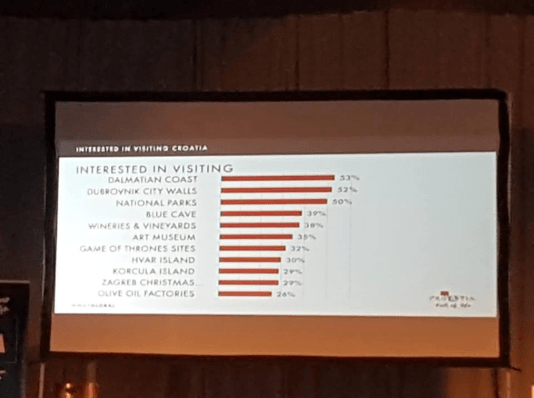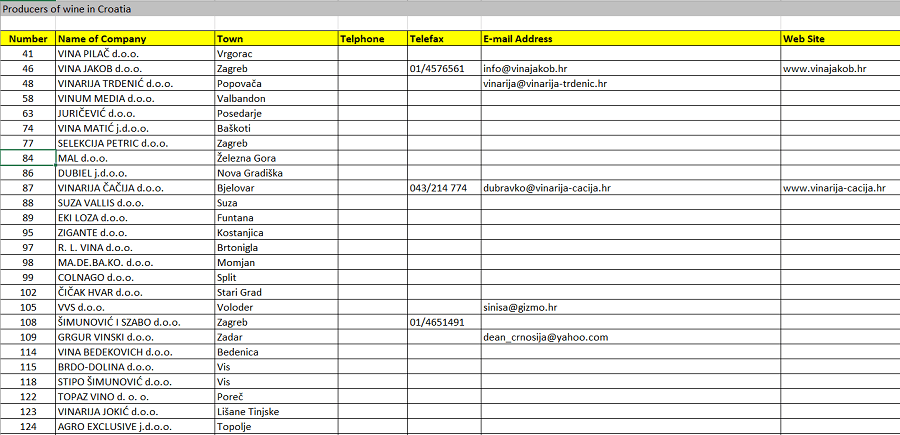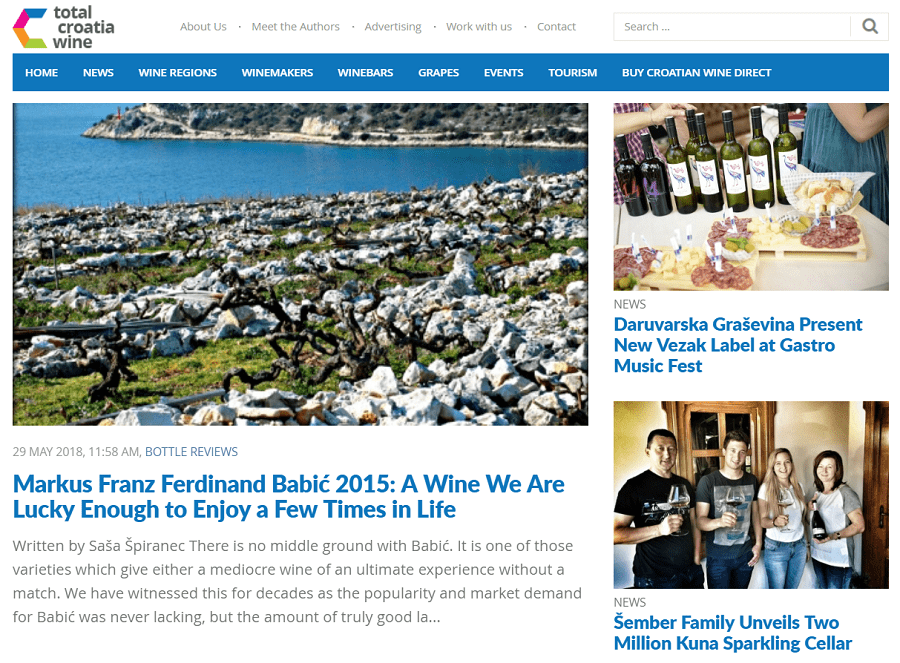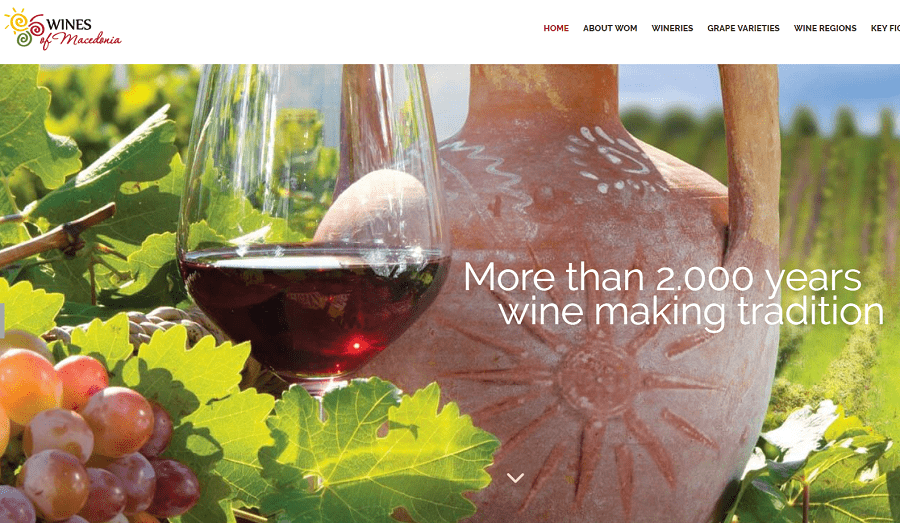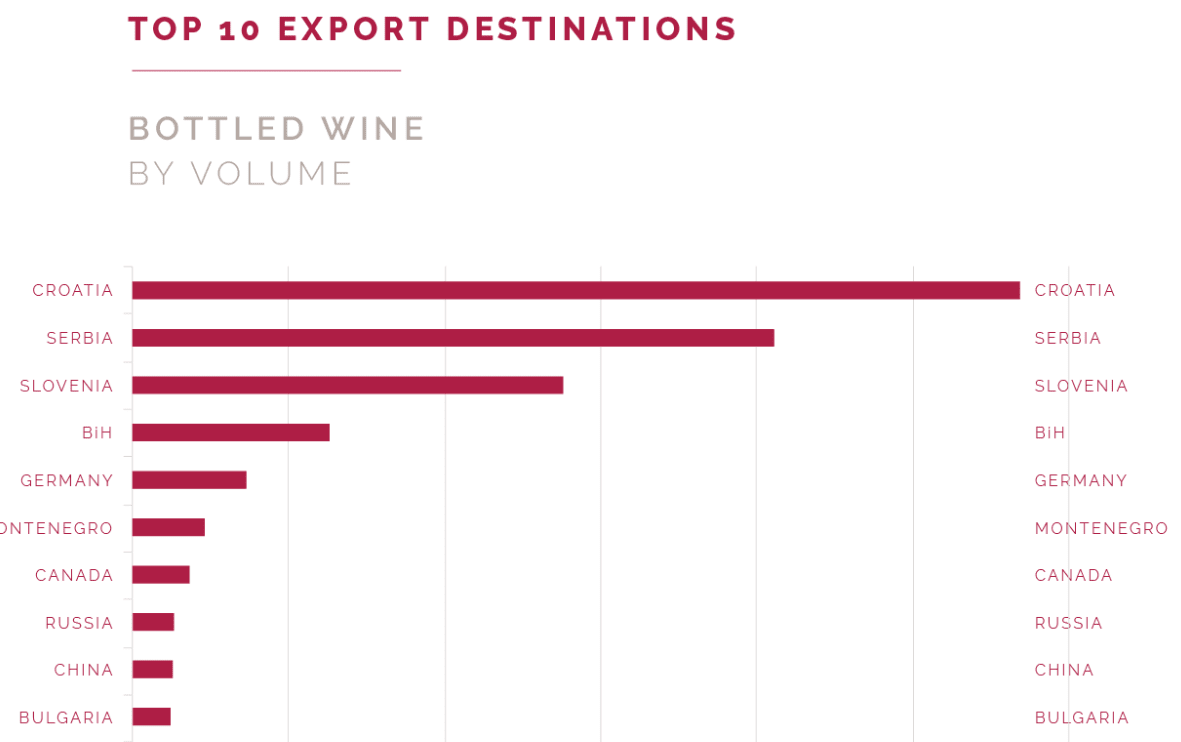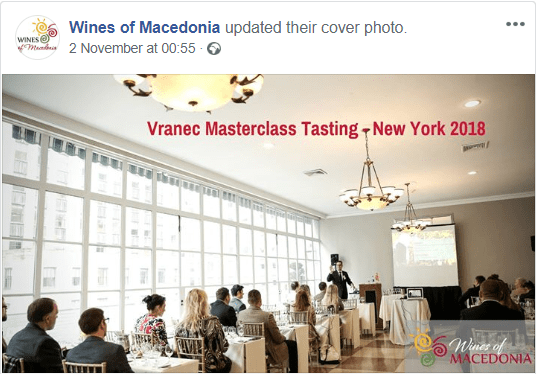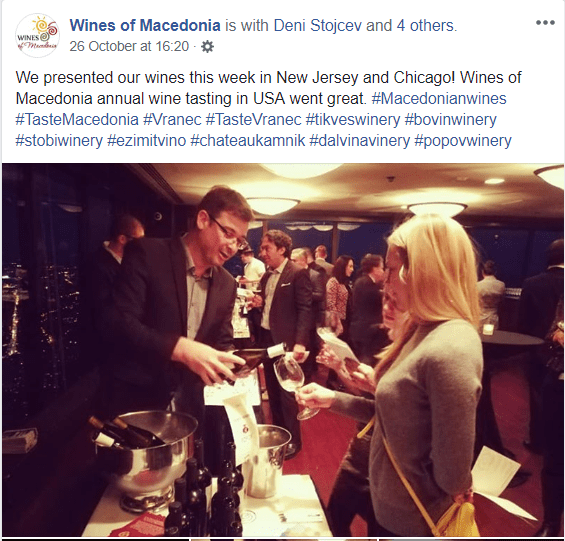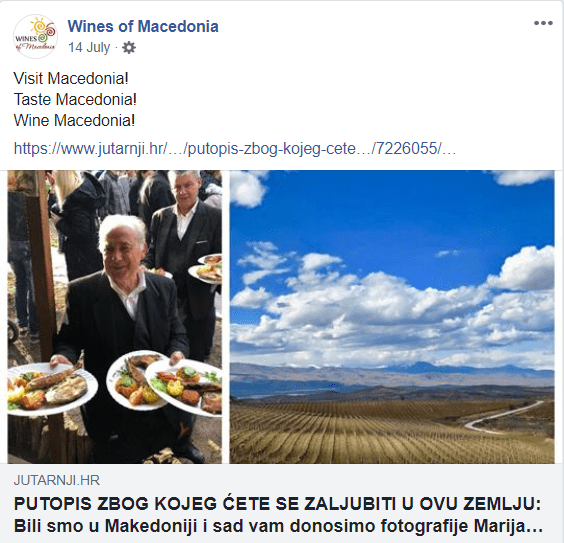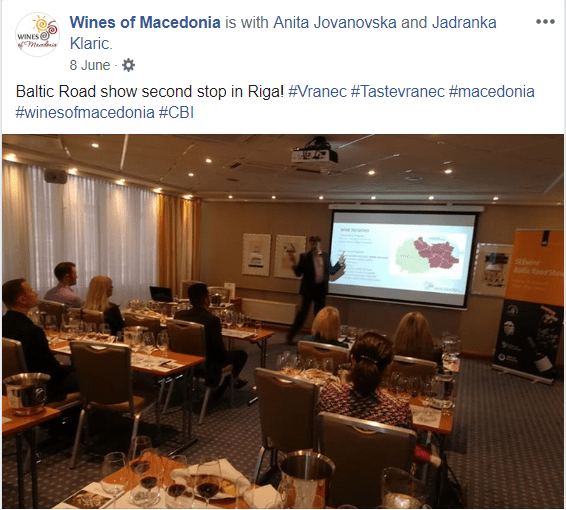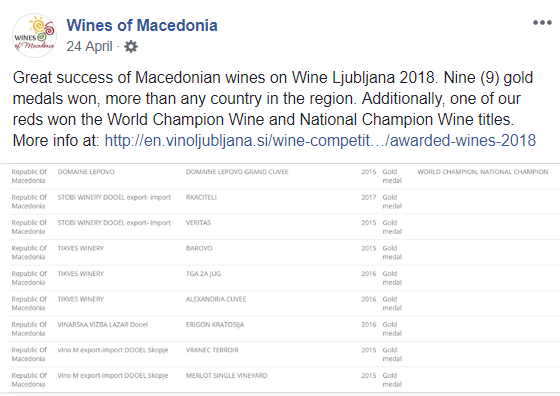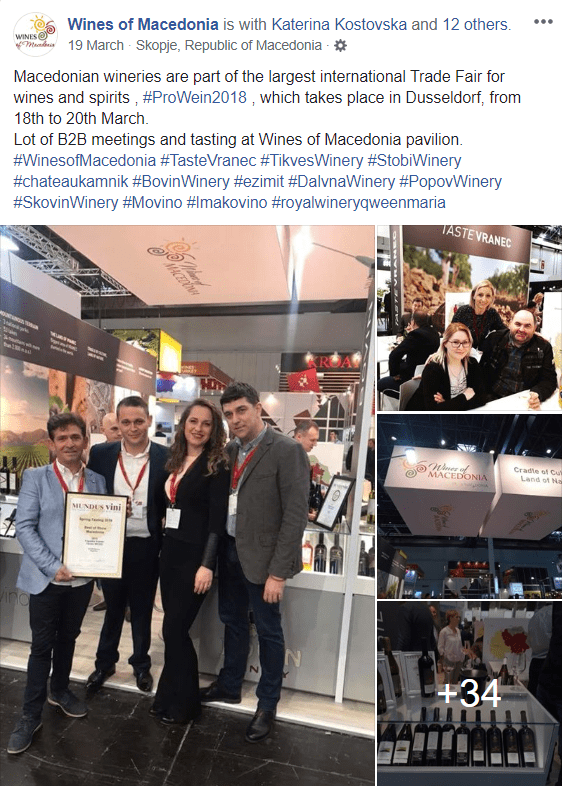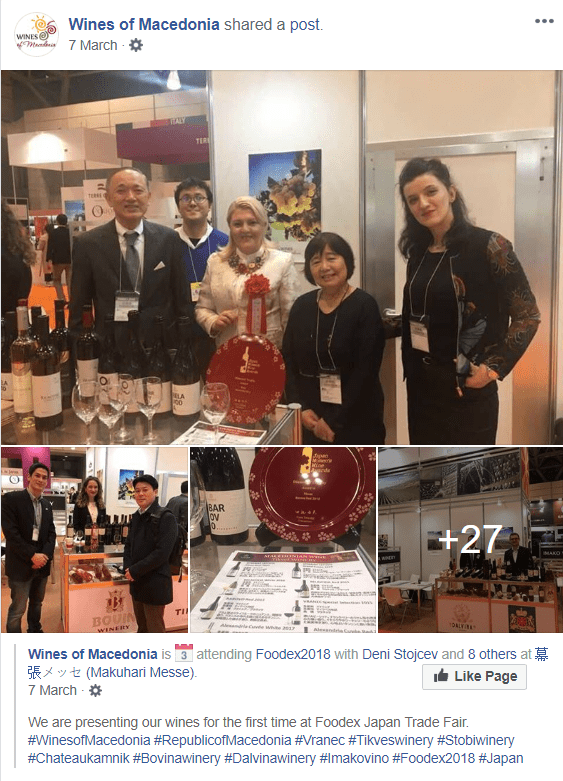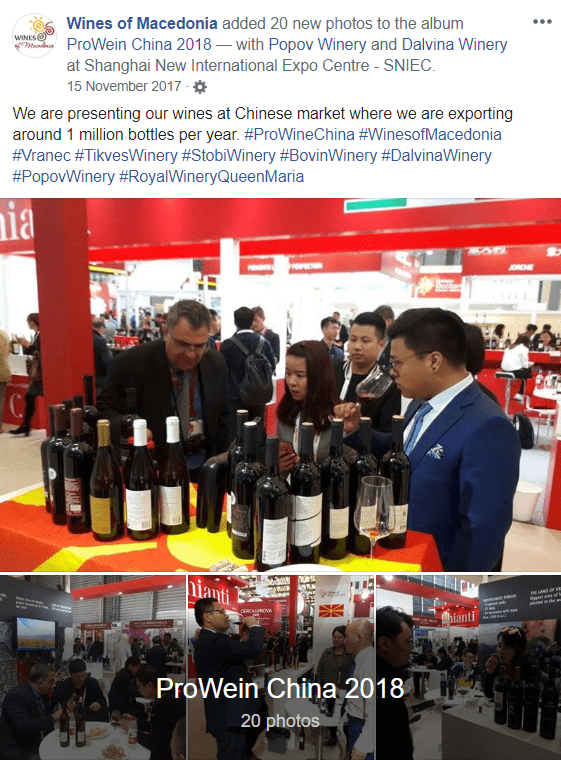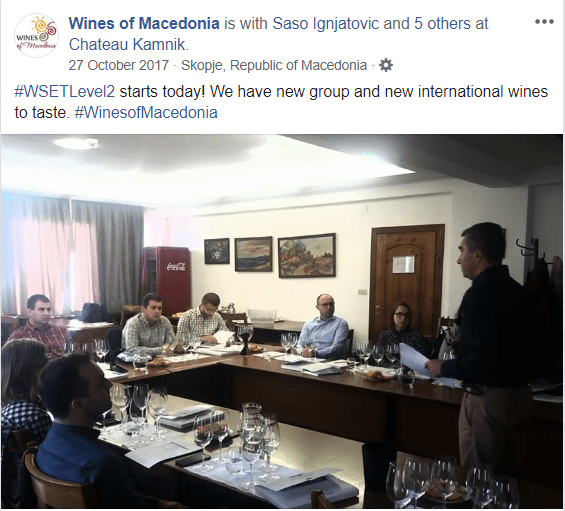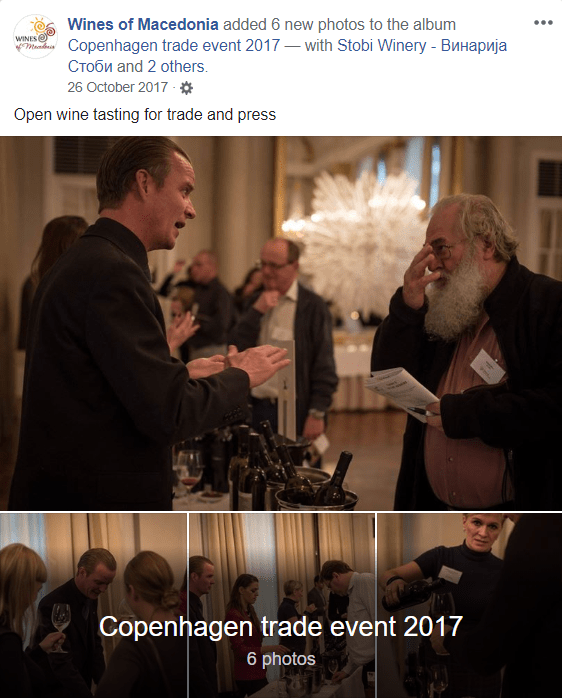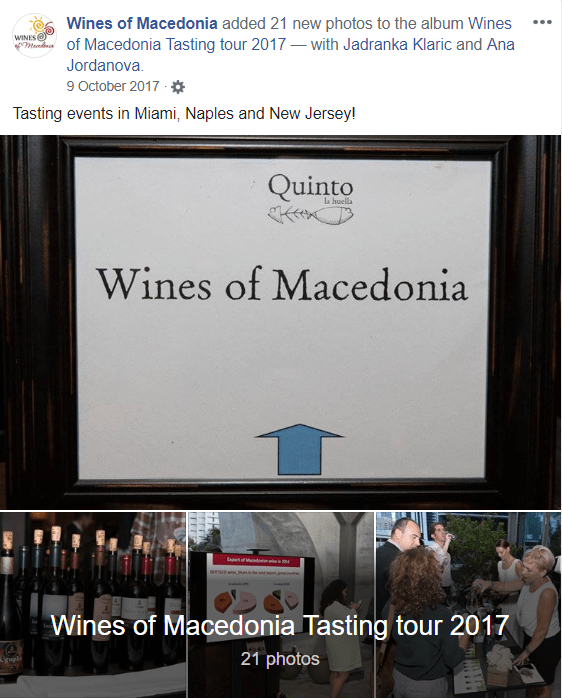Croatia's Civil Aviation Agency to Assist North Macedonia
ZAGREB, August 26, 2019 - The Croatian Civil Aviation Agency (HACZ) will be the project promoter of the "Support for participation in the ECAA - European Common Aviation Area" twinning project valued at 250,000 euro that will provide assistance and expertise to aviation authorities in North Macedonia, the HACZ reported on Monday.
The EU Delegation to North Macedonia last week announced that the HACZ would be the project promoter following the evaluation of bids submitted at an international tender, the HACZ noted.
The project is aimed at providing expertise and assistance to North Macedonia's civil aviation authorities in an effort to support the sustainable development of civil aviation in accordance with international standards and EU legal acquis in that field.
That will be achieved by aligning national legislation with European laws and increasing North Macedonia's aviation capacities and technical competence.
"The HACZ's international success as a partner to Macedonia's aviation authorities in this project is yet another recognition of its successful work so far and confirmation of the HACZ's institutional status within the framework of the relevant civil aviation authorities in the EU," the HACZ said.
The agency underlined that over the past ten years it has developed into a respectable and desired partner in the EU, primarily due to its human resources potential and value, and this has been confirmed with a successfully completed twinning project with Georgia in 2015-2017, when HACZ was a junior partner to the Austro Control GmbH in the implementation of that project.
More news about relations between Croatia and North Macedonia can be found in the Politics section.
Croatia Regrets Lack of Support for Opening EU Talks with North Macedonia, Albania
ZAGREB, June 19, 2019 - Croatian Foreign Minister Marija Pejčinović Burić regretted on Tuesday that there was no agreement among EU member states about recognising the progress of North Macedonia and Albania and opening accession negotiations, with a decision postponed for October.
Member states' foreign ministers made the postponement in Luxembourg without clearly indicating whether they will approve opening the negotiations in October.
"Croatia's position hasn't changed. We wanted it also a year ago at the General Affairs Council meeting, when the majority of the member states advocated giving a deadline of one year and beginning negotiations with North Macedonia and Albania this June, if they met the set demands," Pejčinović Burić said.
"However, for certain reasons, there were member states that could not agree to such a text so we agreed to consider it again at this General Affairs Council meeting. Unfortunately, we didn't get far. Now the number of states with certain reservations has even increased," she added.
"We advocated opening those negotiations both with Albania and with North Macedonia because we think each has made such progress that it should be recognised in the right way," the minister said.
Croatia, the Czech Republic, Estonia, Bulgaria, Hungary, Latvia, Lithuania, Austria, Poland, Malta, Italy, Slovakia and Slovenia have forwarded a joint request for opening accession negotiations with the two countries.
France and the Netherlands are particularly against opening the negotiations.
Pejčinović Burić said she was the only one at today's meeting to talk about the European perspective of Bosnia and Herzegovina.
"We believe it's very important to raise awareness in European institutions of BiH's European perspective because we think it's very important not to lose sight of that. There's a lot of work ahead for BiH, but it's important to repeat every time that it's a country with a European perspective and that the European journey is the best option for the stabilisation and prosperity of BiH as well as the entire region," she added.
More news about Croatia and the European Union can be found in the Politics section.
Croatia Ratifies Protocol on North Macedonia's NATO Accession
ZAGREB, March 1, 2019 - The Croatian parliament on Friday ratified North Macedonia's NATO accession protocol with 116 lawmakers voting in favour of the country's accession to the alliance as its 30th member and two being against.
In attendance at the session was a state delegation from Skopje and Parliament Speaker Gordan Jandroković congratulated them on this success.
Jandroković also said that Croatia "will continue supporting Macedonia on its journey towards the European Union".
The parliament also adopted a law on the election of councils and representatives of ethnic minorities with an aim of enhancing the status of minorities. Thus, elections for those councils and representatives will be held on the first Sunday in May every four years.
More news on the relations between Croatia and Macedonia can be found in the Politics section.
Most Parties Support NATO Membership for North Macedonia
ZAGREB, February 28, 2019 - During a parliamentary debate on the ratification of the protocol of North Macedonia's admission to the North Atlantic Treaty, a majority of Croatian parliamentary clubs supported the entry of the 30th member into NATO, explaining that this would make the Euro-Atlantic space safer and more stable, whereas opposition party Živi Zid lawmakers used the debate to express their criticism against the alliance.
Presenting the motion for the ratification of the protocol, Foreign Ministry State Secretary Andreja Metelko Zgombić said that Croatia had always supported North Macedonia's accession to NATO, and that the support was intensified after Zagreb joined the alliance.
Branimir Bunjac of the Živi Zid accused NATO of killing hundreds of thousands of innocent civilians, and said that neither Croatia nor Macedonia organised a referendum on their accession to the alliance.
Bunjac also wondered which left party could support NATO, which prompted Josko Klisović of the Social Democratic Party (SDP) to respond that those left options that feel responsibility towards the security of their citizens and their countries supported NATO.
Klisović also retorted with a counter-question whether Croatia would have been exposed to the war in the 1990s, had it been a member of NATO.
The admission into NATO closes a gap in that part of Europe, he said adding that the collective security would be bolstered.
Vesna Pusić of the GLAS party congratulated North Macedonia for reaching the point at which it would enter the alliance, and described it as a historic moment.
Independent lawmaker Tomislav Žagar underscored North Macedonia's efforts including the acceptance of a compromise including the name change.
More news on Croatia and NATO can be found in the Politics section.
Božinović Visits Croatian Police on North Macedonian-Greek Border
ZAGREB, February 27, 2019 - Croatian Interior Minister Davor Božinović and his North Macedonian counterpart Oliver Spasovski on Tuesday visited Bogorodica, the North Macedonian-Greek border crossing where 11 Croatian police are helping the police of North Macedonia.
Their main job is to prevent the illegal crossing of the border. The Croatian police told Božinović that the patrols in which they had taken part had uncovered a majority of the migrant smugglers arrested on this route.
Speaking to the press, Spasovski thanked the Croatian Interior Ministry and Croatia as the first state which sent police to Macedonia on a bilateral basis. "I wish to honour them for their professional work and for the exchange of experience with the Macedonian police. This is an example of how we should work together to resolve global problems."
Božinović said he was especially pleased when praise came from international partners and friends, adding that this was an example of how states dealt with transnational problems.
"No state can resolve alone issues which are cross-border in nature, from terrorism to organised crime and... more and more illegal migration. Croatian police do not protect only the Croatian border but 11 of them are transferring their experience in dealing with the migrant crisis in Croatia to their colleagues here in North Macedonia," he said.
He said the trends in both countries were similar and that it was very important that police forces exchanged experience and were always ahead of smugglers. He added that last year North Macedonia prevented 16,900 illegal migrants from crossing the border.
More news about the migrant crisis can be found in the Politics section.
Croatia Supports Security Cooperation between SE European Countries
ZAGREB, February 26, 2019 - Croatia strongly supports security cooperation within all three internal security pillars of the Brdo Process - fighting terrorism, preventing organised crime and protecting the borders, Interior Minister Davor Božinović said at a Southeastern European ministerial conference in Skopje on Tuesday.
Božinović said in his address that Croatia was aware that by developing and strengthening security structures in neighbouring countries it was helping to create a secure environment on the external borders of the European Union.
That's why Croatia is ready at all times to assist and support the countries of Southeastern Europe in making further progress on their path to EU membership and will continue sharing its experience and knowledge, he added.
Speaking to Hina, Božinović said that it was in Croatia's interest "to fill the gap in security cooperation between Southeastern European countries, and between the EU and this part of Europe."
"Our interest is for the EU to focus on this region as much as possible, given that many challenges to the security of the European Union, and hence Croatia as well, lie here. That's why we are making, as one of the pillars of our security policy, strong diplomatic efforts not just within the EU but also outside of it," Božinović said.
He recalled a recent summit of leaders of the EU and the Arab League which was dominated by the issue of illegal migration as a consequence of economic and political developments in certain parts of the world.
"We need to cooperate in the joint search for solutions in confronting this major challenge to Europe's security. At each stage of the migration route, from sources to transit countries, we look for partners to try and find the best solutions through dialogue. The countries of Southeast Europe are our immediate neighbours from where migrants are coming and we have to find solutions together with these countries, but as EU members we also have to ensure that the administration in Brussels pays more attention to this part of our continent," Božinović concluded.
During the conference, Božinović held a bilateral meeting with Kosovo Interior Minister Ekrem Mustafa, who said that his country was using the good experience of the Croatian police in modernising its police force.
The conference was also addressed by Interior Ministers Oliver Spasovski of North Macedonia and Boštjan Poklukar of Slovenia, as well as by EU Deputy Director General for Migration and Home Affairs Olivier Onidi.
More news about the relations between Croatia and the countries of the region can be found in the Politics section.
Interior Minister Visits North Macedonia, Discusses Migration
ZAGREB, February 26, 2019 - Croatian Interior Minister Davor Božinović began a two-day visit to North Macedonia by meeting with his counterpart Oliver Spasovksi in Skopje on Monday evening.
Spasovski thanked Croatia for police assistance in dealing with the migrant crisis and for political support in helping his country on the path to membership of the European Union and NATO. "This is yet another confirmation of our friendship and cooperation," Spasovski said after the meeting, thanking Croatian police for helping their Macedonian colleagues in securing the border with Greece.
"This is very important for Macedonia and the whole region. This model shows how cooperation in dealing with crises such as migration, which has hit all of us, should be functioning," he added.
Spasovski said they had discussed bilateral relations, combating organised and cross-border crime, the integration of North Macedonia into NATO, and the sharing of Croatia's experience from the EU accession process.
Božinović said that the Croatian parliament would ratify North Macedonia's NATO accession protocol most likely by the end of this week, adding that this was a major step for stability and security in the region and for the country's EU membership bid.
Božinović expressed hope that North Macedonia would open EU membership negotiations as soon as possible, adding that one of the priorities of the Croatian presidency of the EU in the first half of 2020 would be further EU enlargement.
"It will certainly be the period in which both Croatia and North Macedonia will do as much work as possible regarding (Macedonia's) EU integration," the Croatian minister said.
He said he was glad to hear that the hosts were satisfied with the cooperation between the two countries, especially with the cooperation with the Croatian police deployed at border crossings with Greece to prevent illegal migration.
"This route which runs from Greece stops before the Croatian border and that's why it is very important to us to cooperate with all these countries to improve this entire process, all the procedures that protect the security of our border and the security of our citizens and our guests," Božinović said.
He noted that migration was one of six priority areas of cooperation between the EU and membership aspirants, adding that during its EU presidency Croatia would organise a special conference on this matter.
Božinović said that North Macedonia and other countries in the region have in Croatia their staunchest advocate in the EU institutions.
On Tuesday, Božinović is scheduled to attend a Brdo Process conference and visit Croatian police deployed along the Macedonian border with Greece.
More news about relations between Croatia and Macedonia can be found in the Politics section.
Croatian Defence Minister Visits Macedonia
ZAGREB, February 6, 2019 - Croatian Defence Minister Damir Krstičević began a two-day official visit to Macedonia on Tuesday, expressing full support for Macedonia's Euro-Atlantic integration and readiness for further bilateral cooperation, the Defence Ministry said in a press release.
Krstičević also congratulated Macedonia's Prime Minister Zoran Zaev and Defence Minister Radmila Sekerinska on reaching an agreement with Greece that resolved the dispute over Macedonia's name.
"This is a historic success that will enable Macedonia to continue its Euro-Atlantic integration towards membership of NATO and the European Union. Croatia will continue to offer its support to Macedonia on its Euro-Atlantic path and is ready to share its know-how and experience with you. We are pleased that the Croatian Embassy in Skopje was NATO's contact point and that Croatia was able to provide expert assistance to Macedonia in establishing contacts, convening meetings and in negotiations with NATO representatives," Krstičević said.
Prime Minister Zaev said that these were historic times for Macedonia. "We have achieved an important agreement with Greece which is significant for Macedonia's future. I am pleased that you are visiting Macedonia in this significant week and we are grateful for the help that Croatia offered to Macedonia in its integration with NATO. We thank the Croatian government for its great support. Croatia and Macedonia are truly great friends," Zaev underscored.
During the meeting with Minister Sekerinska, it was pointed out that Croatia and Macedonia are friendly countries that have excellent defence cooperation.
Minister Sekerinska thanked Croatia for the support it continually provided to Macedonia. "Thank you, Croatia, for everything you have done for Macedonia in bilateral relations and regarding NATO. The Croatian Embassy was NATO's contact point and it truly provided quality preparations and assistance. Indeed, Croatia and Macedonia have a long partnership and friendly relations. I am pleased that we have excellent cooperation in the area of defence, particularly in training and education," she said.
The ministers agreed that it was important to continue bilateral cooperation, emphasising that "we are participating together in the A-5 initiative which is an example of excellent cooperation and joint preparation of our soldiers for operations and missions in an international environment. We have established excellent cooperation over the years in training and educating Macedonian officers at Croatia's Military Academy."
The ministers also discussed expanding cooperation and exchanging experiences in the field of assisting civilian institutions and in the defence industry.
Minister Krstičević is also due to meet with Parliament Speaker Talat Xhaferi and President Gjorge Ivanov.
More news on the relations between Croatia and Macedonia can be found in the Politics section.
Macedonian Gypsy Brass Band Kočani Orkestar to Perform in Zagreb
ZAGREB, January 13, 2019 - Macedonia's gypsy brass band Kočani Orkestar will perform as special guests in Zagreb's Boogaloo Club on January 18, organiser Twilight Promotion announced earlier this week.
Kočani Orkestar are among the funkiest exponents of the Balkan brass band style which is found across ex-Yugoslavia and is a direct descendent of the music once played by Turkish army bands.
They come from the town of Kočani, in Macedonia. Their music is based on Gypsy tunes from various parts of the Balkans and on Turkish rhythms, with a sprinkle of Latin flavour.
Their song "Siki, siki baba" is featured on the soundtrack for the movie Borat: Cultural Learnings of America for Make Benefit Glorious Nation of Kazakhstan although it has no connection to the music of Kazakhstan. Together with the Romani singer Esma Redžepova, Naat Veliov has filed a lawsuit for the producers of the movie for an unauthorised use of the song.
The band recorded five albums "A Gypsy Brass Band", "L'orient est rouge", "Gypsy Mambo", "Alone At My Wedding" and "The Ravished Bride", and the sixth studio album is underway.
More news on the concerts and music festivals in Croatia can be found in out Lifestyle section.
Lessons from Macedonia: How Croatia Can Learn How to Market Wine
November 7, 2018 - Croatia is the home of the original Zinfandel, home to 130 indigenous varieties of outstanding quality, but with no idea how to promote its wines on the international stage. Some lessons from Macedonia.
Although I once spent five years in the wine industry running a small family business in the UK with my father, I am a beer man these days. Perhaps that was the reason that it took me so long to realise Croatia had an incredible wine story that was not being told. In fact, I remember when I first moved into the small house in the old town of Jelsa, a very friendly bearded man who looked a little like Father Christmas knocked on the door and introduced himself in French, before giving me a welcome bottle of rose and telling me he was the next door neighbour. It was several years until I realised that Andro Tomic was one of the most celebrated winemakers in Croatia.
Slowly I started to learn what I had been missing. The island of Hvar had an incredible wine story dating back 2,400 years to the arrival of the Ancient Greeks in 384 BC, and the vines and olive trees they brought with them and planted in what became the UNESCO World Heritage Site, the Stari Grad Plain, are testament to part of that tradition. But Croatia, it seemed, was also the original home of Zinfandel - a fact proven by DNA matching at the University of Davis back in 2001 - and it was a Croat who rocked the snobby French wine establishment back in 1976 at the so-called Judgement of Paris.
I was not alone in my ignorance of the excellence of Croatian wine. The late, great Anthony Bourdain was totally blown away by the Croatian food and wine story when he visited six years ago, and his No Reservations episode on the Travel Channel remains, for me at least, one of the finest pieces of Croatian tourism in history.
A promotion which has not been capitalised on, for six years later, the rich potential of Croatia's food and wine tourism remains in its infancy.
Interest in, and awareness of, Croatian wine is growing. Indeed, among American travellers, 'wineries and vineyards' was the number 5 thing of interest in a recent major survey of tourism interest in Croatia within the US market. Great news, especially as Croatia has such a strong wine offer.
So where is the information for them to find out more? Where is the official website telling the world about Croatian wine?
It doesn't exist.
I was quite shocked when I learned this a few years ago, and I saw that there was an opportunity for TCN to get into the Croatian wine information market. I asked the tourism gurus and the Chamber of Commerce for help and financial support to put something together. None was forthcoming. But there must be a database of winemakers, surely? If I could get that, I could easily put them on an interactive map, which would help people find winemakers directly.
There WAS a database.
Kind of.
After an epic struggle, the Chamber of Commerce finally sent me their database of winemakers. I was beyond excited. I could quickly put this comprehensive database into map form, and we would have the first ever map of Croatian winemakers.
And then I opened the database.
Just 235 winemakers on the list (compared to more than 500 on the subsequent map I built on Total Croatia Wine).
195 of these 235 had no website details.
106 had no email address.
72 had no phone number.
All businesses in Croatia must pay a minimum of 500 kuna a year to the Chamber of Commerce. Would it be too much to expect to get at least a listing on a database with some basic contact details?
And so Total Croatia Wine was born. In addition to a map of all the winemakers, we created individual wine maps for various regions, a section on the main indigenous grapes of Croatia, profiles of some of the main winemakers and so on. We even started shipping Croatian wine to customers all over the EU, the United States and Japan. I was surprised to learn that, despite being such an important wine region, Dalmatia had no wine road. I asked the Ministry of Tourism why and received this rather spectacular response:
As far as wine roads are concerned, there is a number of websites where wine roads in Croatia can be found, including in Dalmatia, such as the Biokovo Wine Road, the Vis Road, the Brač wine road, etc.
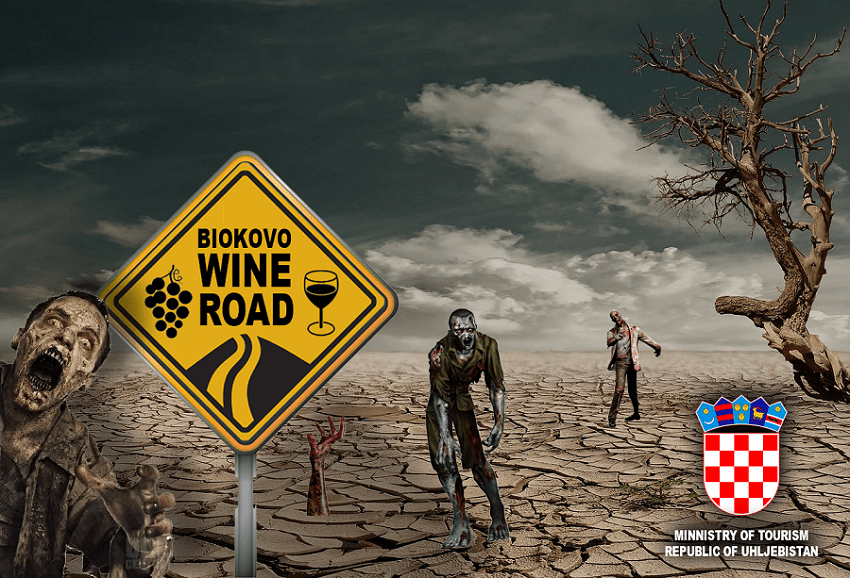
The Biokovo Wine Road? This was a new wine road to me and certainly not one on my Total Croatia Wine map. It turned out that not only had I never heard of it, but neither had anyone else in the wine industry in Croatia.
It doesn't exist. And while there may be some grapes grown here and there, there are no winemakers, no tourism wine tasting opportunities. The Ministry of Tourism had managed to create something rather unique - a wine road with no grapes. I asked for more details about this Biokovo phenomenon, a link to just one of those 'number of websites' - I am still waiting for the answer.
Wineries and vineyards is the number 5 thing of interest for American tourists looking to visit Croatia. And nobody can officially tell you where the wine roads are. I turned to the Croatian National Tourist Board for help. Did they have a map of wineroads in Croatia? They didn't, but they were very helpful in trying to get the information:
Please find attached the list of wineroads in Croatia which we have collected by county tourist boards. We are still waiting for few replies so we can send you final list when we receive the missing replies.
At least now there is some information available, but only because a journalist requested it.
"Why is this region so crap at promoting wine?" I asked a respected international wine professional recently.
"This region, or Croatia?" came the reply. "Croatia is a special case. But if you want to see how it is done, check out how Macedonia is doing it with their Wines of Macedonia association. And the website info is just one part of it. Macedonia is kicking some major ass with its wine presence all over the world and trade fairs and promotions. Croatia is nowhere to be seen. Perhaps a few individual Croatian producers will come, but they are often under the umbrella of their country agent. But Macedonia? They are united, present together, with winemakers contributing their costs according to the number of hectolitres they produce."
Wow! Meet the Wines of Macedonia website!
Macedonia exports 85% of its wines to 38 countries, a business worth 50 million euro each year. And - this is priceless - can you guess which country imports the most Macedonian wine in the world?
Yup - Croatia! Not only can Croatia not tell the world about its wines, or organise its winemakers to market them internationally, but it is also the leading buyer of wines from the neighbours.
To quote from the website:
Wines of Macedonia (WoM) is an organization that unifies the work of Macedonian wine producers, committed to promoting the quality and image of Macedonian wine throughout the world.
The Association is established in April 2010 as an NGO to represent common interests of its members as well as:
• provide strategic support to the Macedonian wine sector including developing the wine and viticulture industry in Republic of Macedonia
• increase export of both bottled and bulk wines
• build an umbrella recognition of Macedonian wines on the regional and international markets
• advocate in front of Government of Republic of Macedonia and other relevant institutions.
What does Croatia have in comparison?
And to finish, a selection of photos from the Wines of Macedonia Facebook page, showing how active they have been all over the world in the last year.
Is it really too much to expect for our tourism and commercial geniuses to come up with something similar?
Congratulations to Macedonia - a wonderful example in how to promote your wine industry.
To learn more about wines from Macedonia, visit the Wines of Macedonia website.
If you are looking to learn more about wines from Croatia, I am really not sure what to suggest, but while I have a think, here is the TCN wine website.

